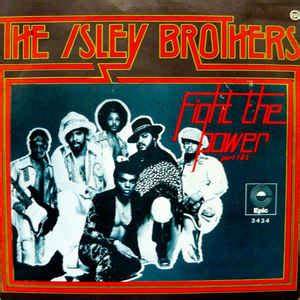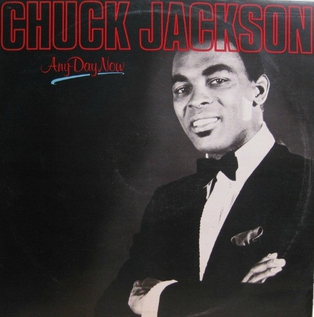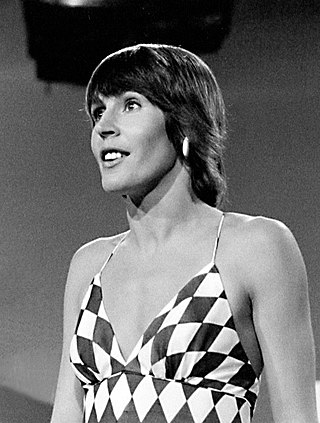
"Fight the Power" is a song recorded by the Isley Brothers, who released the song as the first single off their landmark album, The Heat Is On. The song is notable for the usage of the word bullshit, which was censored during radio airplay.

"(Get Your Kicks on) Route 66" is a popular rhythm and blues song, composed in 1946 by American songwriter Bobby Troup. The lyrics relate a westward roadtrip on U.S. Route 66, a highway which traversed the western two-thirds of the U.S. from Chicago, Illinois, to Los Angeles, California. The song became a standard, with several renditions appearing on the record charts.
"Teach Me Tonight" is a popular song that has become a jazz standard. The music was written by Gene De Paul, the lyrics by Sammy Cahn. The song was published in 1953.
"And That Reminds Me", also known as "My Heart Reminds Me", is a popular song.
"My Heart Cries for You" is a popular song, adapted by Carl Sigman and Percy Faith from an 18th-century French melody. The song has been recorded by many singers, the most successful of which was recorded by Guy Mitchell which reached No. 2 on the Billboard chart in 1951.

"I'll Never Fall in Love Again" is a popular song by composer Burt Bacharach and lyricist Hal David that was written for the 1968 musical Promises, Promises. Several recordings of the song were released in 1969; the most popular versions were by Dionne Warwick, who took it to number 6 on Billboard magazine's Hot 100 and spent three weeks topping the magazine's list of the most popular Easy Listening songs, and Bobbie Gentry, who topped the UK chart with her recording and also peaked at number 1 in Australia and Ireland, number 3 in South Africa and number 5 in Norway.

"The Next Time I Fall" is a song written by Bobby Caldwell and Paul Gordon and recorded by a duet of Peter Cetera and Amy Grant for Cetera's 1986 album Solitude/Solitaire. It reached number one on Billboard magazine's Hot 100 and Adult Contemporary chart and was nominated for a Grammy Award for Best Pop Performance by a Duo or Group with Vocals. In February 2020, it was listed on a Billboard pop music list of top 25 love song duets.

"(I've Been) Searchin' So Long" is a song written by James Pankow for the group Chicago and recorded for their album Chicago VII (1974). The first single released from that album, it reached number 9 on the U.S. Billboard Hot 100. It also hit number 8 on the Adult Contemporary chart. In Canada, the song peaked at number 5.

"C'mon Marianne" is a song composed by L. Russell Brown and Raymond Bloodworth and popularized by The Four Seasons in 1967. Produced by Bob Crewe, the single was the last Four Seasons single to reach the Top Ten of the Billboard Hot 100 chart in the 1960s, and their last Top Ten hit until "Who Loves You" in 1975.

"Easier Said Than Done" is a popular song sung by The Essex that was a number-one song in the United States during 1963. It topped the Billboard Hot 100 singles chart on July 6, 1963, and remained there for two weeks. The song was written by William Linton and Larry Huff.

"Any Day Now" is a popular song written by Burt Bacharach and Bob Hilliard in 1962. It has been recorded by numerous artists over the years, including notable versions by Chuck Jackson in 1962, Alan Price in 1965, Elvis Presley in 1969, Scott Walker in 1973 and Ronnie Milsap in 1982. In the lyrics, the singer predicts the imminent demise of a romantic relationship and describes the sadness this will leave.

"Hey There Lonely Girl" is a song released in 1969 by Eddie Holman. The original version, "Hey There Lonely Boy", was recorded in 1963 by Ruby & the Romantics. It was a hit for both of them. It has since been recorded by many other artists.
"A Lover's Question" is a 1958 Pop, R&B hit for Clyde McPhatter. The single was written by Brook Benton and Jimmy T. Williams and was Clyde McPhatter's most successful Pop and R&B release. The bass singer is Noah Hopkins. "A Lover's Question" made it to #6 on the Billboard Hot 100 and was #1 for one week on the R&B chart.
"Inside Love " is a song written by Kashif, and performed by American R&B singer George Benson.
"Funny How Time Slips Away" is a song written by Willie Nelson and first recorded by country singer Billy Walker. Walker's version was issued as a single by Columbia Records in June 1961 and peaked at number 23 on the Hot C&W Sides chart. The song has been featured in several live action films and television shows, such as in the first episode of the second season of AMC’s Better Call Saul and in the 2020 Netflix drama The Devil All the Time.

Australian-American singer Helen Reddy (1941–2020), often referred to as the "Queen of 70s Pop", recorded 18 studio albums, seven of which have achieved sales of 500,000 units in the US for which they were awarded Gold certification by the Recording Industry Association of America. One of those seven, I Am Woman, eventually went Platinum by reaching sales of one million copies, and her first compilation album, Helen Reddy's Greatest Hits, was awarded Double Platinum status in 1992 for hitting the two million sales mark. The respective US and Canadian album charts in Billboard and RPM magazine each had appearances by 10 of these LPs during the 1970s.

You've Got a Friend is an album by American pop singer Johnny Mathis that was released on August 11, 1971, by Columbia Records. The phrase "Today's Great Hits" can be found above the title on both sides of the record jacket as well as both sides of the LP label as if to emphasize that this is essentially an album covering songs that were recently on the charts. This was a common practice of many vocalists of the period, so much so in fact that fellow Columbia artist Andy Williams also released an album titled You've Got a Friend in August 1971 on which he coincidentally covers seven of the 11 tracks that Mathis recorded for this album.

Feelings is an album by American pop singer Johnny Mathis that was released on October 20, 1975, by Columbia Records and strayed slightly from the practice of covering hits by other artists to include two new songs, both of which were written by Jerry Fuller: "Hurry Mother Nature" and "That's All She Wrote", which Ray Price took to number 34 on the Country chart the following spring.

"Never Ending Song of Love" is a song written by Delaney Bramlett, and, according to some sources, by his wife Bonnie Bramlett. It was originally recorded with their band, Delaney & Bonnie & Friends, in 1971 on the album Motel Shot. Released as a single by Atco Records the same year, "Never Ending Song of Love" became Delaney & Bonnie's greatest hit on the pop charts, reaching a peak of No. 13 on the Billboard Hot 100 and No. 8 on Easy Listening. It reached No. 16 in Australia.

Johnny Mathis has recorded 73 studio albums, 10 of which achieved sales of 500,000 units and were awarded Gold certification by the Recording Industry Association of America. Six of his compilation albums also accomplished this, and of these 16 Gold albums, six eventually went Platinum by reaching sales of one million copies. In 1999, sales figures totaled five million for his first holiday LP, Merry Christmas, and three million for Johnny's Greatest Hits, a 1958 collection that has been described as the "original greatest-hits package" and once held the record for most weeks on Billboard magazine's album chart with a total of 490. His second longest album chart run was the 295 weeks belonging to his Platinum 1959 album Heavenly, which gave him five weeks in the top spot. In a ranking of the top album artists of the last half of the 1950s in terms of Billboard chart performance, he comes in at number two, for the 1960s, number 10, and for the period from 1955 to 2009 he is at number six.














